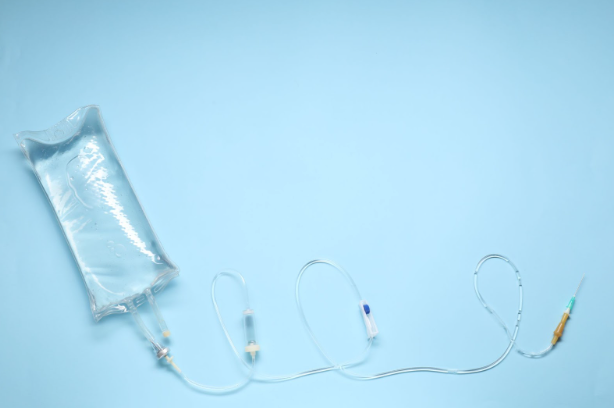Back-to-School Health Tips: Staying Healthy All Semester Long
- Modwella

- Aug 3, 2024
- 6 min read
The start of the school year is just around the corner, and prioritizing your mental and physical well-being is important to perform your best academically. Whether you’re a college student, a parent with school age children, or a teacher, having some strategies in your back pocket will help you, your kids, or your students, stay healthy all semester long.
Back to School Tips for College Students
Establish Healthy Habits
Streamlining your healthy habits to be quick and effective is a great way to prepare for a healthy school year this back-to-school season. As a college kid, your schedule is packed, so prioritizing healthy habits is necessary to balance your commitments.
Getting Enough Hours of Sleep
Getting enough sleep every night can quickly fall to the wayside as a college kid, but it's a game-changing back-to-school health tip for staying healthy all semester long. Getting adequate sleep every night will help keep your immune system strong and boost your mental health, and improve your academic performance.
A great sleep habit you can implement is creating a bedtime routine. Having a routine before you go to bed helps train your brain to know it’s time for bed and to start getting tired. Even a simple routine like putting your electronic devices away, washing your face, brushing your teeth, and reading a book for a few minutes will help you reap the benefits.
Eating a Balanced Diet
Eating regular, healthy meals can give students the energy they need to get through a busy school day. Whole grains, fruits and vegetables, and protein will provide students with sustained energy and keep them fuller for longer.
Finding time to make healthy meals can be half the battle when you’re in college, so finding quick, grab-and-go meals can make healthy eating much more attainable when you have such an intense schedule. Here are some quick and affordable healthy meal ideas:
Overnight oats made with protein powder and topped with fruit and peanut butter
Microwaved baked potato topped with rotisserie chicken, vegetables, and other toppings
Greek yogurt bowls with fruit, nuts, and whole grain cereal.
Whole grain pasta with veggies, canned chickpeas and marinara sauce
Physical Activity
Exercise has been shown time and time again to improve physical health, mental wellbeing, and how well you do in school. Experimenting with fun ways to get physical activity in will help you be able to stay consistent with the habit and stay healthy. Here are some ideas:
Join an intramural team
Go to a workout class with a friend
Pick up the pace while you’re walking to class to get your heart rate up
Look up a 30-minute workout video on YouTube and follow along
Take a 10-minute walk around the library as a study break
Manage Stress
While stress can be a good thing that helps us perform our best in things we care about, too much of it can cause you to feel overwhelmed, tired, and sick more easily. Some things you can do to help manage your stress include:
Staying organized and planning ahead. Get a planner and write down due dates, work shifts, class times, etc. Planning out your schedule will help you reduce unnecessary stress.
Prioritize time for relaxing. Whether it be doing some breathing exercises, watching your favorite show, or doing your favorite hobby, time for rest and relaxation is key for reducing stress.
Seek support when you need it. Support from family, friends, academic counselors, professors, and more will help you feel less overwhelmed. If you feel like you may be struggling with a mental health problem, seeking support from a licensed professional will help you get back to feeling like yourself.
Back to School Health Tips for Parents
For parents of school age kids, the start of the school year means kids coming home with runny noses, sore throats, and stomach aches. Spending hours every day in class with lots of other students, This means that they are much more likely to get sick, so taking action to prevent illness is super important for staying healthy.
Good Hygiene
Teaching your kids the importance of frequent hand washing, covering their mouth when they sneeze, and using hand sanitizer available in their classrooms are all great ways to prevent the spread of germs. Helping your kids get these habits down while your kids are young and living at home will help them prevent the spread of germs
According to the CDC, good hand-washing habits have tons of benefits like reducing respiratory illness rates by 16-21%. Wash your hands for 20 seconds with soap and warm water, and you’re good to go.
Vaccinations and Immunizations
Staying up to date with vaccines and immunizations will help your kids stay healthy all semester long. Make sure they have all of their immunizations as recommended by the American Academy of Pediatrics, and don’t forget to get them a flu shot when winter starts.
Back to School Health Tips for Teachers
Teachers are on the front lines every school year as they interact with a huge number of students on a daily basis. Teachers need to take extra care to guard their immune systems against all of the germs they are coming into contact with. Going the extra mile to give your body all the things it needs to have the strongest immune system possible is super important to stay healthy. Here are a few ways you can bolster your immune system this school year:
Get a Blood Panel
Getting blood panels done is a great way to see what nutrients your body is lacking that may be impairing your immune system. When your body is low on vitamins and minerals that your immune system needs to work its best, you are more likely to get sick more often. Here are a few things you can test for so you can optimize your levels to stay healthy:
Vitamin C: This vitamin is a powerful antioxidant that helps protect cells from damage. It also stimulates the production of white blood cells, which are essential for fighting infections.
Vitamin D: Vitamin D is vital for immune function and helps regulate the body's response to infections. A deficiency can increase susceptibility to illness.
Vitamin A: This vitamin is important for maintaining the health of skin and mucosal cells, which act as barriers against infections. It also plays a role in the functioning of white blood cells.
Vitamin E: Another antioxidant, vitamin E helps protect cells from damage and supports the immune system by enhancing the function of certain immune cells.
Zinc: Zinc is essential for the development and function of immune cells. A deficiency can lead to weakened immune responses and increased susceptibility to infections.
Iron: Iron is necessary for the production of hemoglobin, which carries oxygen to cells, including those involved in the immune response. Low iron levels can impair immune function.
Selenium: This mineral supports the immune system by helping to lower oxidative stress in the body, which reduces inflammation and enhances immunity.
Protein: Adequate protein intake is essential for the production of antibodies and immune cells. Protein malnutrition can severely impair immune function.
Omega-3 Fatty Acids: These fats have anti-inflammatory properties and are important for maintaining the health of cell membranes, including those of immune cells.
Modwella’s in-home lab service makes getting your blood panels completed both convenient and comfortable. All you have to do is find a location near you and schedule an appointment online, and a registered nurse will show up to your home, send out your samples, and then the results will be delivered directly to you.
Get an IV Drip
After you’ve received the results from your labs, getting an IV drip is a great way to send the nutrients your body is lacking directly into your bloodstream. A healthcare professional from Modwella can help customize your treatment plan with IVs that will benefit you the most. This will give your immune system the boost that it needs before the school year starts. IV drips can also help you recover from sickness more quickly. Here are a few great IV drips from Modwella to consider:
Immunity: The Immunity IV from Modwella is the gold standard for boosting your immune system. With vitamin C, zinc, and toradol, the Immunity give your body an extra dose of these essential immune boosters.
Gut Bug: If you are recovering from some kind of stomach sickness, the gut bug is the perfect IV to get you feeling your best again. This IV contains pepcid, zofran, vitamin C, and B complex, which will soothe your stomach and leave you feeling much more comfortable than before.
Revive: Modwella’s Revive IV, also known as the Meyers IV, is a great option for people looking to boost their immune system. Complete with glutathione, toradol, B complex, B-12, magnesium, vitamin C, and zinc, this IV will help you stay healthy.
Prepare For a Healthy School Year With Modwella
At Modwella, our in-home health services will help you prepare to stay healthy all semester long. Order blood panels to see how we can optimize your health and well being, or schedule an IV drip to give your body a nutrient boost before classes begin. Our in-home services make being your healthiest self accessible and convenient. Browse our locations to find a provider near you.
.png)



Comments